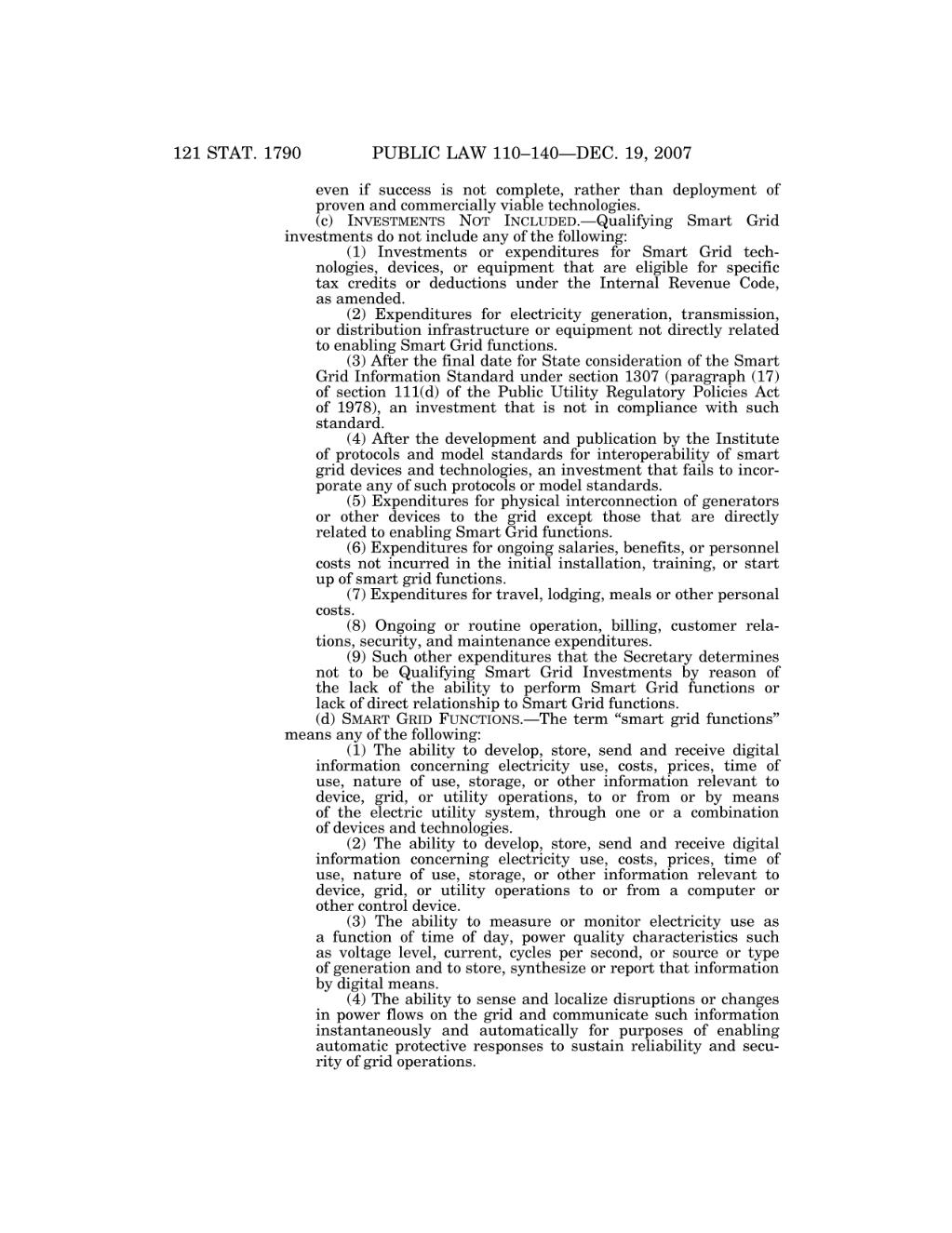121 STAT. 1790
PUBLIC LAW 110–140—DEC. 19, 2007
dkrause on GSDDPC44 with PUBLAW
even if success is not complete, rather than deployment of proven and commercially viable technologies. (c) INVESTMENTS NOT INCLUDED.—Qualifying Smart Grid investments do not include any of the following: (1) Investments or expenditures for Smart Grid technologies, devices, or equipment that are eligible for specific tax credits or deductions under the Internal Revenue Code, as amended. (2) Expenditures for electricity generation, transmission, or distribution infrastructure or equipment not directly related to enabling Smart Grid functions. (3) After the final date for State consideration of the Smart Grid Information Standard under section 1307 (paragraph (17) of section 111(d) of the Public Utility Regulatory Policies Act of 1978), an investment that is not in compliance with such standard. (4) After the development and publication by the Institute of protocols and model standards for interoperability of smart grid devices and technologies, an investment that fails to incorporate any of such protocols or model standards. (5) Expenditures for physical interconnection of generators or other devices to the grid except those that are directly related to enabling Smart Grid functions. (6) Expenditures for ongoing salaries, benefits, or personnel costs not incurred in the initial installation, training, or start up of smart grid functions. (7) Expenditures for travel, lodging, meals or other personal costs. (8) Ongoing or routine operation, billing, customer relations, security, and maintenance expenditures. (9) Such other expenditures that the Secretary determines not to be Qualifying Smart Grid Investments by reason of the lack of the ability to perform Smart Grid functions or lack of direct relationship to Smart Grid functions. (d) SMART GRID FUNCTIONS.—The term ‘‘smart grid functions’’ means any of the following: (1) The ability to develop, store, send and receive digital information concerning electricity use, costs, prices, time of use, nature of use, storage, or other information relevant to device, grid, or utility operations, to or from or by means of the electric utility system, through one or a combination of devices and technologies. (2) The ability to develop, store, send and receive digital information concerning electricity use, costs, prices, time of use, nature of use, storage, or other information relevant to device, grid, or utility operations to or from a computer or other control device. (3) The ability to measure or monitor electricity use as a function of time of day, power quality characteristics such as voltage level, current, cycles per second, or source or type of generation and to store, synthesize or report that information by digital means. (4) The ability to sense and localize disruptions or changes in power flows on the grid and communicate such information instantaneously and automatically for purposes of enabling automatic protective responses to sustain reliability and security of grid operations.
VerDate Aug 31 2005
07:12 Jan 26, 2009
Jkt 059194
PO 00002
Frm 00498
Fmt 6580
Sfmt 6581
M:\STATUTES\2007\59194PT2.001
APPS10
PsN: 59194PT2
�
